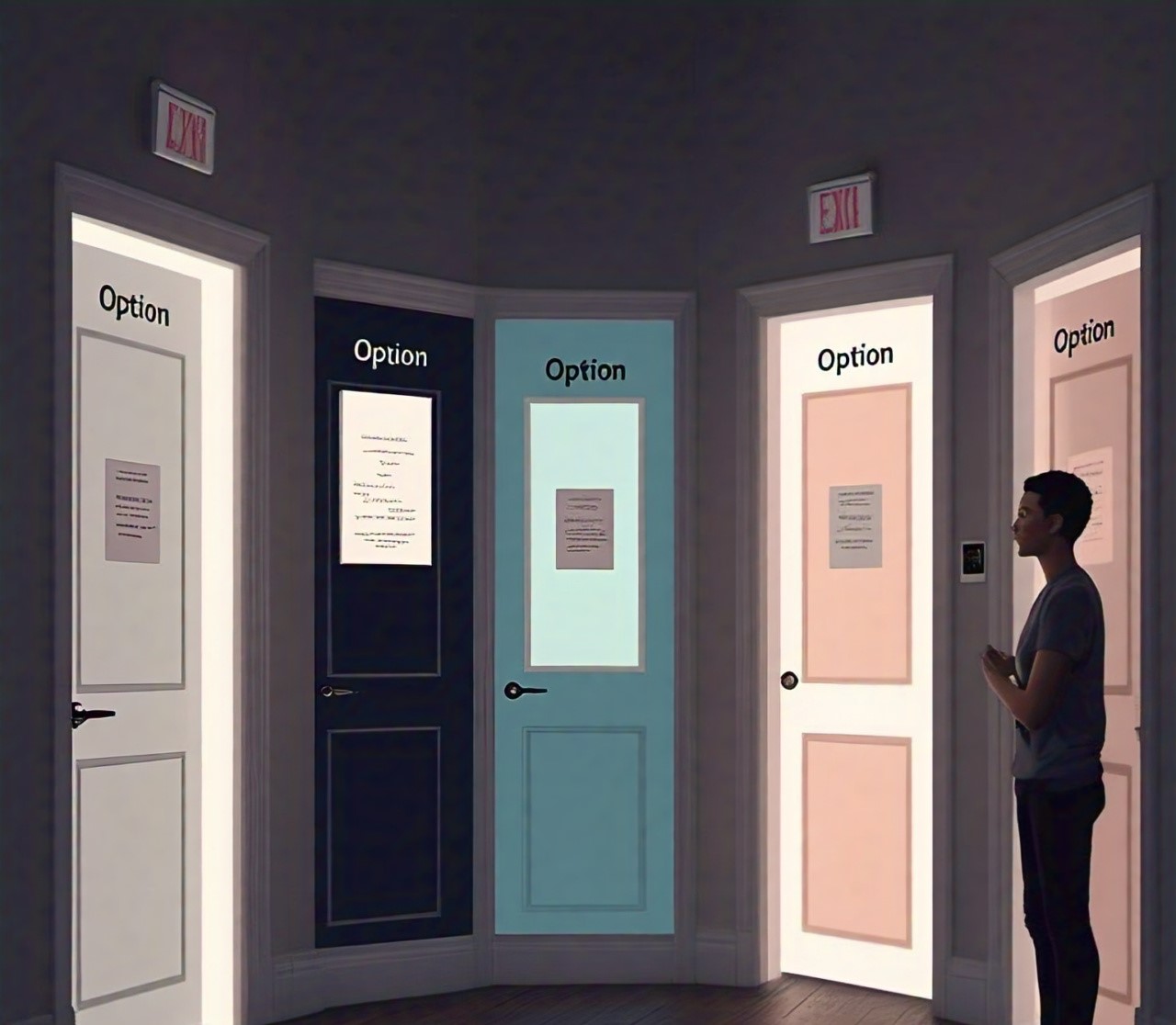Do you have trouble interacting with others or feel overwhelmed by interaction with other people? It could be because you have anxiety; this could make the most simple of social interactions difficult and severely limit your ability to interact with people you know, acquaintances, strangers, and even family members. We suggest that you test yourself with this test for avoidant personality disorders and observe the results you find. From there, you can discuss your answers with a treatment professional to determine if treatment is necessary.
What is Avoidant Personality Disorder (AVPD)?
Avoidant personality disorder is a mental health condition that is characterised by persistent behaviors that are not in the norms of culture that result in suffering for the person or others surrounding them.
The traits associated with this type of personality are extreme social anxiety, inadequacy, and sensitivity to negative criticism and rejection. People with this personality pattern are known to be very sensitive to being judged negatively by other people.
These issues can cause major difficulties that limit the ability to communicate with others and maintain relationships throughout the day. The symptoms of this disorder are typically discovered in childhood and start to cause discomfort during the adolescent years or in early adulthood.
Avoidant personality disorders are a mental health condition that affects a person’s capacity to connect with other people. Most often, the person is shy, and their insecurities as they get older are interpreted as simply their character, but they actually have an anxiety-related personality disorder, which results in them having severe difficulties being around other people. They are extremely sensitive to the way they are perceived by others and are often prone to believing that they’re being judged and criticized; the disorder affects a person’s interpersonal relationships as well as their capacity to function in work and school.
Signs and Symptoms of Avoidant Personality Disorder
It’s easy to ignore the signs that are indicative of an avoidant disorder and say the person is shy or the person is content with being and staying on their own. The test for avoidant personality disorder can help people determine if this mental health issue is present. You can also refer to this list of symptoms and signs that indicate the condition. These include:
- Being uncomfortable in social situations
- Avoiding social situations
- Feeling inadequate about talking and interacting with others
- Afraid about meeting people or being part of a new group
- Oversensitive to criticism or even thinking that people have criticized them
- Believing that they will be rejected and frequently thinking that someone will reject them
- Feeling embarrassed for not being more open and confident socially
- In intimate relationships, it is difficult for them to function.
- Do not take risks on the assumption that you’ll be unsuccessful.
- The notion that people don’t approve of you

How is Avoidant Personality Disorder Diagnosed?
A person’s personality continues to change through the adolescent and childhood years; this is why health professionals don’t often identify a person with an Avoidant Personality Disorder until the age of 18. Healthcare providers require evidence that shows the patterns of behavior they observe remain constant, inflexible, and don’t fade with time.
Personality disorders, such as the avoidant disorder of personality, are difficult to recognize. The reason is that most people who suffer from one do not think there is any issue with their behavior or thinking.
When they do seek help, it’s often due to conditions such as anxiety or depression from the problems created by their personality disorder, like isolation or a lack of friends.
If mental health professionals, like psychologists or psychiatrists, believe that a patient may be suffering from an avoidant personality disorder, they usually ask general, broad questions that don’t cause an atmosphere that the patient might consider to be critical or embarrassing. They can help to understand:
- History
- Relationships
- Previous work history
- Real-world testing
Someone who is suspected of having an avoidant personality disorder might not have insight into their thoughts and behavior patterns. So, mental health professionals frequently collaborate with family and friends to obtain additional information regarding their behaviors and their past.
Mental health professionals determine an assessment of avoidant personality disorders on those criteria that define the disorder from the American Psychiatric Association’s Diagnostic and Statistical Manual of Mental Disorders (DSM-5).
The diagnostic guidelines for avoidant disorder are an ongoing pattern that includes at least five of the behaviors:
- Refraining from work-related activities that require collaboration with others because they are afraid that others might criticize or dismiss their work.
- Refraining from getting involved with other people unless they’re certain that others will like them.
- Refraining or being passive in intimate relationships due to their fear of ridicule or being humiliated.
- Extreme worry about others criticizing or rejecting them in regular social situations.
- They are self-conscious in social situations because they feel insecure.
- They assess themselves as socially unskilled, unappealing, or inferior to others.
- They are reluctant to take personal risks or try new activities because they may feel embarrassed.
Avoidant Personality Disorder Test
Answer the questions below according to your best ability. For every “yes,” add one point. For each “no,” add zero points. Rogge and Kirkland (2014) provide seven conditions for avoidant personality disorder. The patient must show at least four symptoms to meet the threshold for diagnosis; this is a basic screening method that can be used to determine BPD. It is not intended to be a diagnosis by a specialist. If you’re experiencing an emergency, dial 911 immediately or contact your physician closest to you. The following criteria apply:
- Are you hesitant to engage in work that requires significant interaction with people because you fear rejection, criticism, or even rejection?
- Are you hesitant to get involved with other people until you have a certain level of their acceptance?
- Do you exercise caution in intimate relationships out of fear of ridicule or embarrassment?
- Are you concerned about the fear of being rejected or criticized in social settings?
- Are you inhibited in new interpersonal situations due to feelings of inadequacy?
- Do you consider yourself as inferior to others, socially inept, or personally unappealing?
- Are you hesitant to take risks on your own or participate in new activities because it could be embarrassing?
Risk Factors for Avoidant Personality Disorder
There’s no specific reason for someone to develop avoidant personality disorders. Like other mental health conditions, the genetic factor can play a role; if a family is afflicted by psychological illness, that can increase the chance that other members of the family could also suffer from it. Furthermore, one could be affected by the effects of their environment, such as a stressful life situation that can result in an avoidance disorder.
How is Avoidant Personality Disorder Treated?
When someone is diagnosed with avoidant personality disorders, a professional mental health specialist can create an intervention plan to manage them. The degree to which this condition affects the person’s daily life will determine what kind of program they require. The therapeutic programs available are residential programs that require the patient to be in a residence and receive 24/7 support. Others can benefit from outpatient therapy, which permits individuals to remain at home and attend sessions with therapists.
Psychotherapy is the basis of treatment for people with avoidant personality disorders. Individual therapy allows patients to have a one-on-one conversation with a therapist trained to be aware of their particular condition and tendencies to misinterpret the words of others.
Therapy for individuals provides an intimate setting where they can talk about their fears and emotions and rethink any misguided beliefs that have become routine. Many people can progress with Cognitive Behavioral Therapy; it assists them in managing their emotions, dealing with conflicts, and building healthy coping techniques.
In the end, medications can alleviate a person’s symptoms; the doctor treating the patient can provide recommendations to use prescribed medications approved by the FDA to assist a person in reducing anxiety.
How common is avoidant personality disorder?
Avoidant personality disorder is a concern for 1.5-2.5%Trusted Source of the population.
What is the difference between ADHD and AVPD?
Attention deficit hyperactivity disorder (ADHD) is an executive dysfunction disorder that can affect an individual’s ability to concentrate and stay organized. It also affects their ability to manage their impulses.
There is some preliminary evidence that suggests that a higher proportion of people who have ADHD may also exhibit indications of AVPD, but there’s not enough research to confirm this link.
Is Avoidant Personality Disorder a Disability?
The American Disabilities Act (ADA) defines a disability as “a physical or mental impairment that substantially limits one or more major life activities.”
The ADA doesn’t specifically name all of the impairments that are covered, but it is possible that a personality disorder could be a legally recognized disability; however, an official diagnosis and evidence that the disorder is disruptive enough to an individual’s life are necessary.
Read More: Dismissive Avoidant Attachment: Signs, Causes, and How it Affects Relationship
Read More: What is Task Paralysis and How To Overcome It | Start Getting Things Done
Read More: What is Resilience, And Why Is It Important to Bounce Back And Continue?
Conclusion
Avoidant personality Disorder (AvPD) can be described as an extremely challenging mental health disorder that is characterized by a pervasive inhibition of social interaction as well as feelings of inadequateness and a strong desire to avoid social interactions because of the anxiety about being judged and rejected. People suffering from AVPD frequently struggle to form and maintain relationships, which can lead to significant impairment in different aspects of their lives. The treatment options, which include psychotherapy and, in certain cases, medications, may provide valuable assistance in helping people with Avoidant Personality Disorder control their symptoms and enhance their overall well-being. It is essential to develop empathy and understanding towards the people who suffer from AvPD and the effects it has on their well-being and encourage an approach that is compassionate to mental health.





